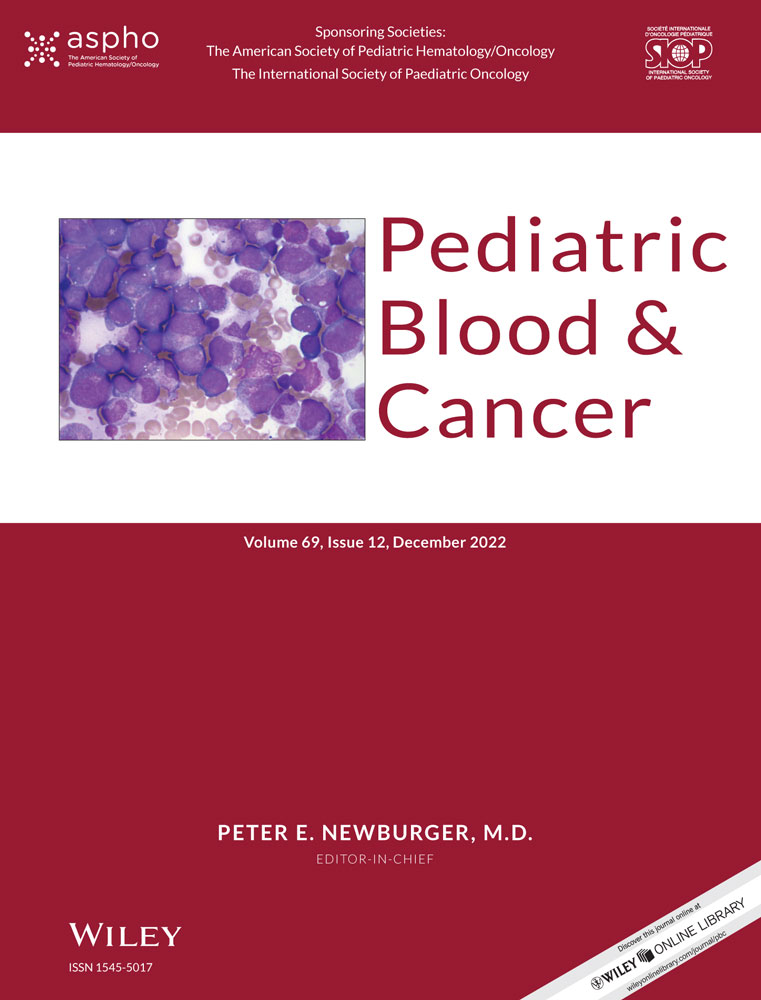Feasibility of treating pediatric intracranial germ cell tumors in a middle-income country: The Jordanian experience
This work was presented partially at the 9th SIOP Asia Congress, April 25–27, 2015 and at the First Pakistan Pediatric Neuro-Oncology Symposium, November 27–28, 2020.
Abstract
Background
Pediatric intracranial germ cell tumors (iGCT) are rare, with limited data available from Arabic countries.
Methods
We retrospectively reviewed the medical charts of children <18 years diagnosed with iGCT at King Hussein Cancer Center/Jordan (January 2003 to December 2020) for clinical characteristics, treatment, and morbidities.
Results
Sixteen patients had germinoma; median age was 6.9 years and median symptoms duration 8 months. Nine tumors were suprasellar, five pineal, and two bifocal. Four were metastatic. Eight patients had slightly elevated beta subunit human chorionic gonadotropin and 11 patients had resection/biopsy. Fifteen patients received chemotherapy; mostly carboplatin (450 mg/m2)/etoposide, which had low toxicity. All patients received radiotherapy (different doses and fields). At median follow-up of 7.7 years, one tumor recurred (progression-free survival: 91% ± 8%). Twelve patients who continued follow-up had stable visual and endocrine deficits to their initial presentation. Five finished or are finishing diploma and seven had poor school performance (four left school). Six patients were diagnosed with nongerminomatous germ cell tumor; median symptom duration was 1 month. Three tumors were pineal, two suprasellar, and one at quadrigeminal plate. Three were metastatic. Five tested patients had high tumor markers and four had resection/biopsy. All patients received chemotherapy, and then five received craniospinal radiation. Two patients are alive, two died with tumor progression, one died in remission with electrolyte imbalance, and one developed leukemia and died with septic shock.
Conclusions
We achieved excellent survival in treating germinoma using a feasible protocol for low middle-income countries. However, patients encountered significant morbidities exacerbated by delayed diagnosis and unnecessary surgical interventions despite abnormal tumor markers. Raising awareness on iGCT symptomatology and diagnosis may help limit these morbidities.
CONFLICT OF INTEREST
The authors declare that there is no conflict of interest.




